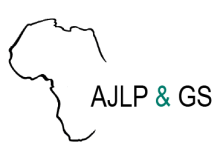Resource information
As African cities expand so does the pressure to improve infrastructure and extend key public services for the growing urban populations. With limited tax receipts, local governments are struggling to finance new urban development or even maintain existing infrastructure. As land has inherent advantages in generating revenue, Land-based financing (LBF) is being seriously considered or piloted as an innovative and additional source for enhancing budgets for infrastructure projects, public services and wider sustainable development. However, the potential and limitations of implementing LBF in African socio-economic and political contexts have been under-researched. LBF feasibility depends on efficiency of several systems such as land rights, land markets, planning process, valuation protocols, local economic strategies and stakeholder involvement as part of a wider functional land governance framework. Based on emerging literature review and assessment of the policy discourse, this article critically explores the Responsible Land Administration (RLA) principles, professional practices and technical capacities that could facilitate the deployment of LBF instruments to invigorate smart, prosperous, fair and inclusive African cities.


